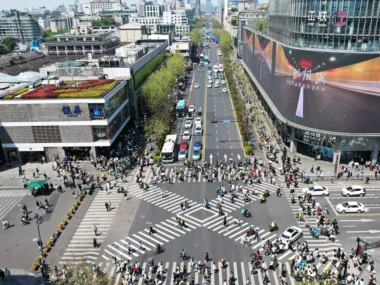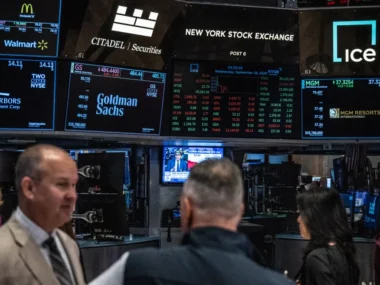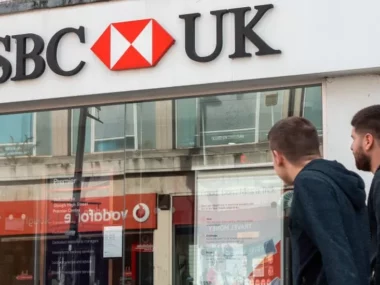Top executives from leading US companies are raising concerns about the negative effects tariffs are having on their businesses and the broader economy.
Major firms like Intel, Skechers, and Procter & Gamble have either lowered their earnings forecasts or stopped providing them altogether, citing increasing economic uncertainty.
President Donald Trump has implemented significant tariffs in an effort to reshape trade relationships with key partners. While no new trade deals have been finalized, discussions with South Korea have shown some progress.
Intel’s CFO, David Zinsner, said the unpredictable trade policies and regulatory risks are heightening the risk of a slowdown, possibly leading to a recession. He warned of rising costs as the company released weaker-than-expected profit and revenue projections, leading to a drop of over 5% in its stock price.
Skechers also unsettled investors by pulling its full-year forecast. Its COO, David Weinberg, noted the current business climate is too unpredictable for accurate planning. Like many in the footwear sector, Skechers relies heavily on manufacturing in Asia, especially China.
At Procter & Gamble, executives warned that tariffs might lead to higher prices for consumers. The company is reviewing pricing strategies to offset increased costs for materials imported from China and other countries. P&G expects slower sales growth than previously predicted. CFO Andre Schulten said they’re working to limit the impact but will likely adjust consumer prices to some extent.
Seven & I Holdings, the Japanese parent of 7-Eleven, also expressed concerns about trade tensions. With over 70% of its sales from North America, its new CEO, Stephen Dacus, told the BBC that the unpredictable nature of tariffs creates major challenges. He emphasized the need to cut costs without compromising product quality.
These firms are among many globally that are sounding the alarm over Trump’s trade strategies. Hyundai, the South Korean automaker, said it has set up a task force to handle the impact of tariffs and is considering shifting some production out of South Korea. The company has already moved some manufacturing from Mexico to the US, which is its largest market.
Meanwhile, US-South Korea trade talks held in Washington DC on Thursday appear to be progressing. US Treasury Secretary Scott Bessent described the meeting as “very successful,” suggesting technical discussions could begin as early as next week. South Korea’s Industry Minister, Ahn Duk-geun, confirmed that both sides are working towards an agreement potentially set for July.
A 90-day freeze on higher tariffs, affecting multiple countries, is due to expire on July 8. President Trump claims over 70 countries have reached out to open trade negotiations since the tariffs were introduced.











